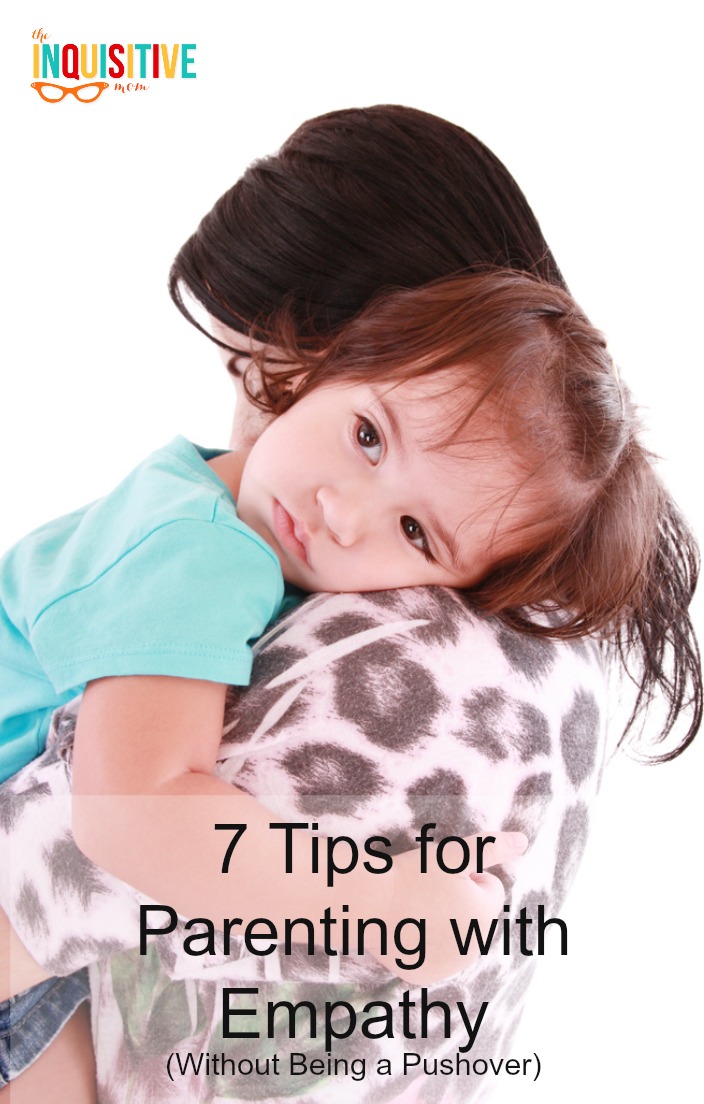 I think my greatest strength and my greatest weakness as a parent are one in the same: empathy. When my child is hurting, I vividly remember the loneliness and heartaches of childhood. When my child doesn’t want to finish the soccer season because he is “the worst on the team,” I want to let him stay home, safe from disappointment. When homework brings a child on the verge of frustrated tears, I want to call it a night. My kids know this about me, too, and they sometimes take advantage. I cherish being an empathetic parent, but I find myself asking, “Am I a Pushover Mom?”
I think my greatest strength and my greatest weakness as a parent are one in the same: empathy. When my child is hurting, I vividly remember the loneliness and heartaches of childhood. When my child doesn’t want to finish the soccer season because he is “the worst on the team,” I want to let him stay home, safe from disappointment. When homework brings a child on the verge of frustrated tears, I want to call it a night. My kids know this about me, too, and they sometimes take advantage. I cherish being an empathetic parent, but I find myself asking, “Am I a Pushover Mom?”
I connect to the principles of Positive Discipline and truly believe that I can demonstrate empathy without being a pushover mom. Acknowledging a child’s frustrations and empathizing with their pain can be part of a healthy connection. Making this connection does not turn me into a pushover mom. If I am unable to stick to rules and maintain order, then I am pushing beyond empathy as a parent.
So, if I don’t want to be a pushover mom, where’s the balance?
Here are 7 Tips for Parenting with Empathy (Without Being a Pushover)
- “I hear you.” Acknowledging your child’s feelings is healthy. Showing empathy doesn’t mean you “agree” with their assessment of a situation. Instead, it shows that you recognize their feelings and honor them.
- Be the Calm One. When my child’s emotions are heightened, I find that mine naturally want to follow. If I can remain steady, calm, and compassionate through the storm, it is easier for me to show empathy AND stick it out with an unpopular parenting decision.
- Don’t Rush It. Showing empathy is not a tantrum quick-fix. If you can anticipate your child’s frustration at stopping a game to put on her shoes or at going to bed when the movie isn’t over, you can plan to work through things together. Sometimes a child just needs a parent to sit and wait things out, giving time to accept and move forward.
- Problem Solve. My kids think I’m silly for telling them, “Be a problem solver,” but I think this is an amazing talent. Sometimes my kids need to let out their emotions before they can get to the problem solving. If I hear their emotions first, then we can often problem solve together.
- More Hugs. Less Words. Less is often more when it comes to showing empathy. Your words can be as simple as, “I wish I could say yes” or “I understand why you’re mad.” Sitting in silence is sometimes the best way to show a child empathy. Not all children want touch, either, but a hug can go a long way to make a connection.
- You Might Be the Bad Guy. I could talk myself blue in the past explaining to my daughter why saying “no” or making her keep a commitment to music lessons or a sports team doesn’t make me “mean.” No matter how much empathy I show, if she isn’t getting what she wants, I’m the bad guy. And I need to be okay with that.
- Share Experiences. Hearing that your mom could never hit the ball or your dad struggled with multiplication can change the dynamics of your relationship.Don’t be afraid to share stories where you didn’t come out victorious, either. It’s not about sharing a perfect ending, but showing that you made it through and they will too.
What are some of your struggles as a parent? Do you lean toward permissiveness or authoritarian? Do you worry about being a pushover mom sometimes?
I’ve never felt like I’m a pushover mom but I certainly am very empathetic. I do sometimes have to steel myself before dealing with certain issues because all I really want to do is hold my babies tight and keep them safe from anything that could hurt them but I know that that won’t really help them. Sometimes we need to gives them the confidence to face the world head on and just wait with open arms to comfort them if the world is too cruel.